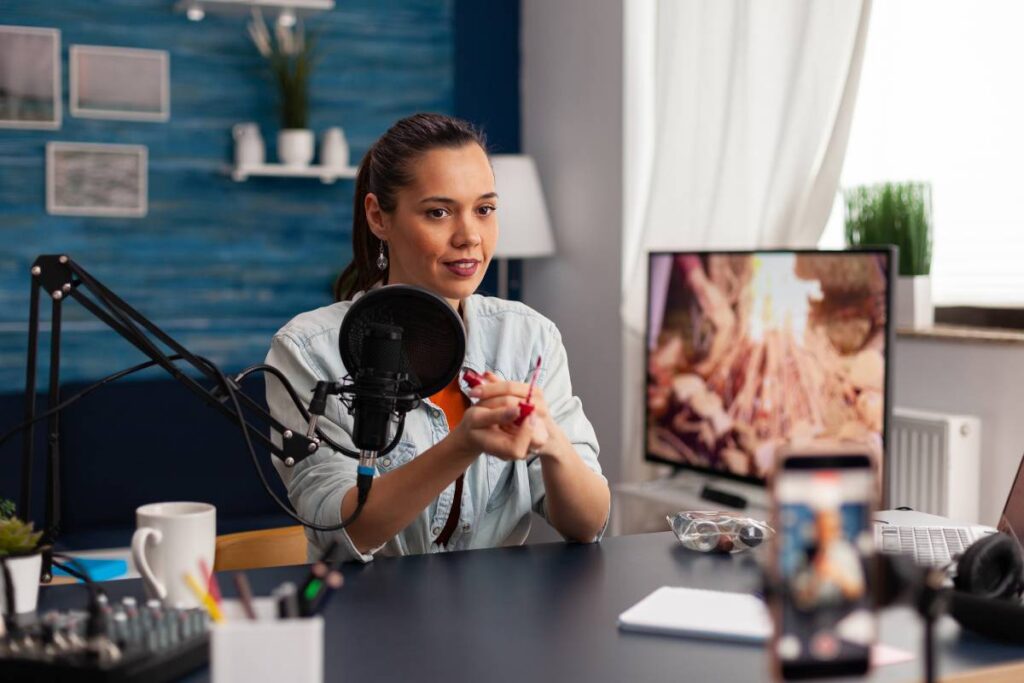If you’re earning income from YouTube, OnlyFans, Instagram, TikTok, or Twitch, chances are you’re operating as a business in the eyes of the ATO. And with that comes the opportunity to claim deductions on your tax return, that is, if you know what you’re entitled to.
As an accountant for content creators, we help influencers, streamers, and digital creatives understand what they can and can’t claim. From camera gear to website costs, here’s what you need to know when tax time comes around.

When Does the ATO Consider You a Business?
The ATO doesn’t just look at how much you earn, it also looks at how consistently you post, your intention to make a profit, and whether you promote products or accept sponsorships. If you’re doing any of the following, you’re likely considered to be running a business:
- Earning money through ads, subscriptions, tips, or product promotions
- Receiving gifts, discounts, or freebies in exchange for content
- Having a content schedule or marketing plan
- Keeping financial records for your content work
Whether content creation is your full-time job or a side hustle, once you’re making income, it’s time to think like a business owner, especially at tax time.
In fact, this ABC News article recently reported that income from side hustles is now a major focus for the ATO, with platforms like YouTube and OnlyFans legally required to report the income earned by their users. As the ATO explains, if you’re engaging in continuous and repeated activities for the purpose of making a profit, it’s likely you’re running a business and may need to register for GST and lodge business activity statements once you exceed the $75,000 annual threshold.
Common Tax Deductions for Content Creators
There’s no one-size-fits-all list, but here are some of the most common business-related expenses creators can claim. Your eligibility depends on how you work and what percentage of each item is used for business purposes.
1. Home Office Costs
If you create content from home, part of your rent, electricity, internet, and phone expenses may be deductible. The percentage you can claim will depend on how much of your space and time are dedicated to work.
2. Equipment and Tech
Creators often invest heavily in tech. You may be able to claim:
- Cameras, tripods, ring lights, and microphones
- Smartphones and laptops
- Editing monitors or external hard drives
- Repairs or accessories for work equipment
3. Subscriptions and Software
From editing tools to social media schedulers, these often fall under business expenses. Think:
- Adobe Creative Cloud or Final Cut Pro
- Canva Pro, scheduling apps like Later or Buffer
- Cloud storage like Google Drive or Dropbox
4. Website Costs
If you run a website, blog, or sell content or merchandise online, you may be able to claim:
- Domain names and hosting fees
- Web design or development costs
- E-commerce platform fees
- SEO or online marketing services
5. Props, Costumes and Makeup
Stylised content often requires props, stage makeup or specific costumes. These may be deductible if they’re used exclusively for content creation. Everyday clothing and personal grooming, however, are generally not claimable.
6. Travel for Work
Travelling to film, collaborate, or attend events? Work-related travel expenses could include:
- Flights, accommodation and car hire
- Taxi or rideshare fares
- Meals (if you’re travelling overnight for business)
Just be sure to keep detailed records, especially if you’re combining work and leisure travel.
7. Professional Services
If you outsource part of your workflow, those costs may be claimable. This could include:
- Freelance editors, designers or photographers
- Business or social media coaches
- Your accountant or bookkeeper
8. Banking and Transaction Fees
If you receive income via Stripe, PayPal, or other platforms, their transaction fees are typically deductible. So are bank fees on a business account.
9. Courses and Education
Upskilling in editing, photography, business or marketing? Online courses and workshops directly related to your content business may be eligible.

What You Can’t Claim
While the list above seems generous, not everything is fair game. You generally can’t claim:
- Clothes you wear on or off camera unless they are specific costumes
- General personal care, including haircuts or makeup not used for performance
- Meals or entertainment that aren’t directly work-related
- Non-business portions of your phone, internet, or rent unless clearly apportioned
- Gifts received in exchange for posts (as they count as income, not expenses)
A good rule of thumb: if the expense helps you earn income and is not private in nature, it’s likely worth investigating.
Why Work with an Accountant for Content Creators?
Content creators face unique challenges when it comes to tax. With inconsistent income, international payments, sponsorship arrangements, and blurred lines between work and personal life, it’s easy to miss deductions or make costly mistakes.
That’s where we come in. As accountants for influencers, OnlyFans creators and YouTubers, we know what the ATO is looking for and how to help you stay compliant while maximising your deductions.
Need help sorting your tax return?
Get in touch with Schofield’s Accountants today. We work with countless content creators and influencers and we understand your world. We’ll help you get set up, stay on track and grow your creative business with confidence.




